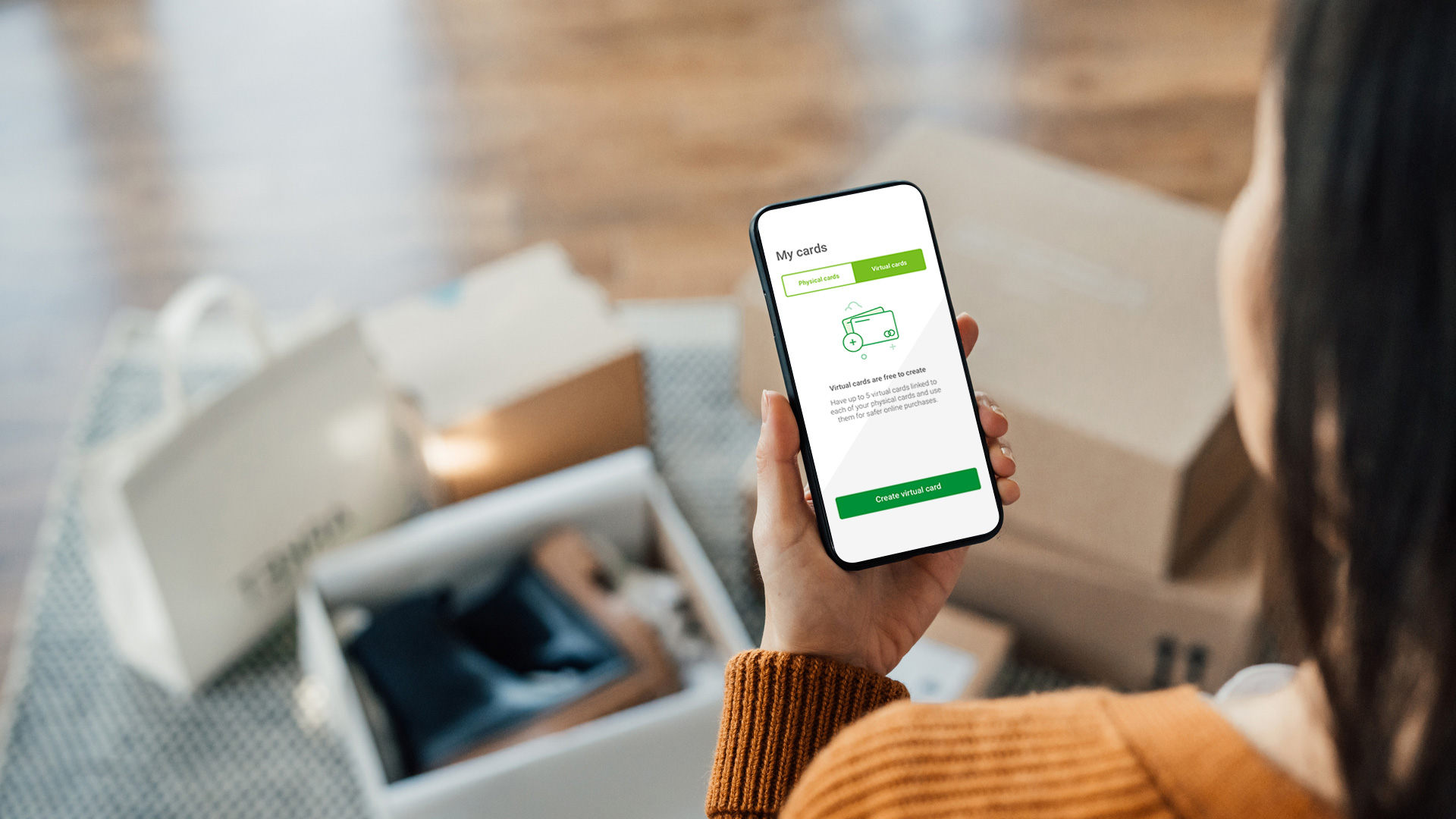In a fast-paced digital world, where every click and swipe can lead you to a new deal, voucher fraud is another danger you need to guard against. What you think is an incredible offer on an online voucher could turn out to be a fake that costs you dearly.
Cybercriminals keep coming up with new scams to target all kinds of digital transactions, including the many vouchers now sold online. If you fall for a voucher fraud scam, the financial impact can be immediate. For example, if you buy a fake voucher for something essential like electricity, you’ll end up paying twice just to keep your power on, and you could also give the fraudster access to your banking information. If they can trick you into revealing personal details, they may be able to access your online banking profile and wreak havoc on your finances.
You can reduce your vulnerability to voucher fraud by knowing how it works, what precautions you can take, and how to spot a crooked offer.
What kinds of vouchers are vulnerable?
Unlike a gift card issued by a store, which gives you a certain value to spend on anything in the store that you like, a voucher is usually issued for a specific product or service at a set price, often including a discount. You can buy retail vouchers for major chains selling groceries, fashion, tech devices, hardware or building supplies, shopping vouchers to spend on digital shopping platforms like Avo SuperShop, Takealot and Amazon, restaurant vouchers for meals at popular fast-food chains, and travel vouchers for flights and accommodation from airlines and travel companies. Some businesses, including banks, also offer vouchers for products and services as a reward, or as part of a promotion.
However, both gift cards and vouchers can be used as bait in voucher fraud, because scammers also sell fake gift cards online. We’ll use the term ‘voucher fraud’ for convenience – but remember that the information below applies equally to store gift cards.
What is voucher fraud?
Scammers will try to sell you fake vouchers, or try to steal your legitimate voucher codes to get free access to a product or service that you’ve paid for. These fraudsters will also try to steal your personal information, so that they can gain unauthorised access to your card details and digital banking profile.
If you suspect voucher fraud, contact your bank immediately
Voucher fraud is often difficult to trace, so it’s a significant threat to individuals and businesses. Techniques include:
- Duplicating vouchers
Fraudsters make copies of a legitimate voucher.
- Creating fake vouchers
Cybercriminals design fraudulent vouchers that appear genuine.
- Altering voucher details
Scammers change the value or expiry date of a legitimate voucher.
There are several types of voucher fraud, including the following:
- Phishing scams used to steal legitimate vouchers
Scammers send emails or messages trying to trick you into providing your voucher code as soon as you buy it.
- Fake giveaways
Criminals offer high-value vouchers (which turn out to be fake) in exchange for personal information.
- Third-party resales
This is a common social media scam. Fraudsters pretend to be reselling vouchers from a reputable vendor at a discount, but they also turn out to be fake.
- Clone sites
Some fraudulent websites mimic legitimate businesses by copying their homepage and branding, and often look amazingly like the real thing. They try to trick you into using your voucher to buy something on the site, but steal your voucher instead.
- Malware carriers
Fake vouchers can also hide digital malware – when you click on them, they may download a virus or other malicious software to your device that compromises the security of all your data and apps.
How to guard against voucher fraud
Read your digital banking notifications carefully before you approve anything. If you’re a Nedbank client, check what you’re authorising on those Approve-it messages. If you suspect voucher fraud, or you get a banking notification for a voucher that you didn’t buy, contact your bank immediately. Likewise, if your phone is lost or stolen, you must contact your bank to deactivate any banking apps and protect your digital banking from thieves.
If you’re a Nedbank client, call 0800 110 929 to report potential voucher fraud, or the loss or theft of your phone.
Some red flags to watch out for
- Unexpected vouchers
Receiving vouchers via email or SMS that you did not buy.
- Suspicious links
Voucher offers that ask you to click on suspicious links or provide personal information.
- Too good to be true
Offers that seem unusually generous, like high-value vouchers for minimal cost. No, Apple / Makro / Game / Pick n Pay / Takealot are not selling iPhones for R69 in return for answering a few questions, no matter what it says on Facebook. We promise.
Stay alert and informed for the sake of your peace of mind and financial well-being
To protect yourself, take the following actions when you suspect a voucher fraud attempt:
- Verification
Always verify the source of the voucher. If in doubt, contact the company allegedly offering the voucher directly.
- Don’t click suspicious links
Avoid opening any links in unsolicited messages – especially if you move your cursor over the address and the URL appears as a random string of letters and numbers.
- Stick to secure websites
Ensure that the website offering the voucher is secure (look for ‘https’ at the start of the URL and a padlock icon).
Voucher fraud: A threat to businesses too
The dangers posed by voucher fraud and gift card scams are not limited to your personal finances – they also threaten your commercial activities. If a fraudster pretending to be your business sells scam vouchers or gift cards using your branding, your company could suffer reputational damage. Even though your business isn’t behind the scam, repeated fraud in your name will undermine trust in your legitimate promotional activities.
Voucher fraud also harms businesses in other ways. If vouchers are stolen and the voucher vendor is found liable for the security breach, the vendor may have to refund the customers who originally bought the vouchers. The resources spent on investigating and mitigating fraud are another expense that affects the bottom line. In extreme cases, you may even make the costly decision to honour fake vouchers to prevent any further reputational damage to your business.
Get secure digital vouchers at Avo SuperShop
Be vigilant against voucher fraud and take the precautions we’ve outlined. Stay alert and informed for the sake of your peace of mind and financial well-being.
You can also take all the worry out of buying vouchers by shopping at Avo SuperShop – Nedbank's trusted digital store that offers legitimate vouchers for everything from prepaid electricity, airtime and water to high-tech gadgets and home essentials.







